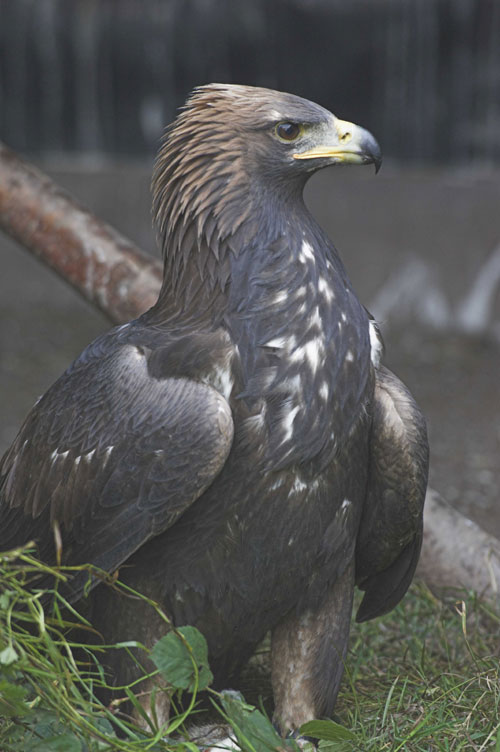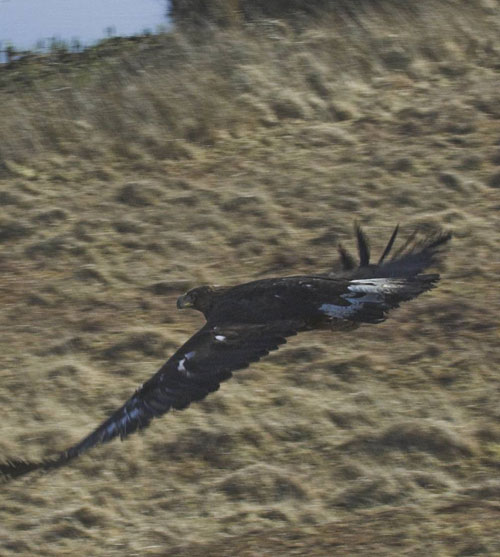A golden eagle found with an injured wing on the Isle of Mull is the first ever to be successfully released by the Scottish SPCA.
The bird of prey was returned to the wild last week with the assistance of the RSPB and Raptor World, after eight months in the Scottish SPCA’s care.
The eagle called Bud also suffered from a “freak accident” which broke his right leg but has now fully recovered.

Colin Seddon, manager at the charity’s Rescue Centre in Clackmannanshire, said: “Bud was found to have soft tissue damage to his wing which took a long time to heal and unfortunately once he had fully recovered he broke his right leg in a freak accident.
“The break was repaired by a vet using an external fixator and as the healing process was very long Bud was kept with us over winter.
“It is testament to the expertise of vet Romain Pizzi and the careful nursing and handling of Bud by our wildlife team that he made a full recovery.

“We had to carefully choose the best time and place to release Bud and, following discussions with David Sexton of the RSPB and Stewart Millar from Raptor World, we decided to take him back to a location close to where he was found.
“It was then a case of waiting for a reasonable weather window. We didn’t want to release him in a period of heavy rain as he may not have been able to hunt.
“We also had to avoid strong winds because, as an inexperienced flyer, Bud would have been blown away from the release site where support food and monitoring is being provided by the RSPB.”
Mr Seddon continued: “Bud is the first ever golden eagle we’ve been able to release back into the wild and everyone involved is extremely pleased with the outcome.
“It is rare for us to rescue golden eagles as there are so few of them in Scotland and because they tend to live in remote areas they often die before they are found if they become sick or injured.”
